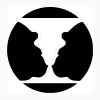 sgrais
sgraisSpace
•Shapes
of any size, however small, occupy space.
•Space
can be occupied or left blank.
•Space
can appear flat or suggest depth
Types of Space
When defining an image’s space, there are three basic elements of composition to consider: the frame, the positive space and the negative space.
Positive
is the active space or the subject
The negative space is defined by the edges of the positive space and the image frame or border, it can also be completely bounded by the positive space......a donut hole.
The
frame
Good composition strives for a balance between the frame, the positive space and the negative space.
Negative space is not just the absence of something. It has weight and mass, and plays an important role in defining your subject.
The use of the positive and negative spaces interacting with the edges of your work, has measurable effects on a viewer's eye.
The goal in composition is controlling the viewer's eye. You want viewers to discover things that might not be immediately obvious.
Tips
Too often when we draw something, we stop observing the subject and start drawing what we know and
remember about the subject. By working from the negative spaces rather than
focusing on the object, you end up with a much more accurate drawing.
When an image is turned upside down, positive and negative space when balanced stay
balanced. By turning the picture
upside down, you will inhibit that part of your brain that tries to categorize
and give things names. It will then be easier to see shapes and the spaces
between your frame and the subject.
Katsushika
Hokusai The Great Wave Off Kanagawa
From "Thirty-six Views of Mount Fuji"; 1823-29
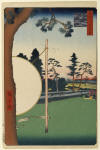
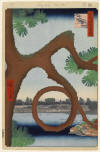
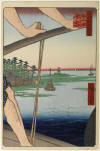
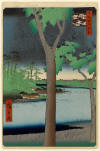
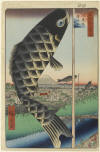
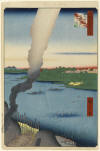
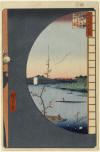
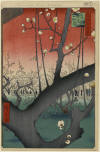 Hiroshige, Ando Plum
Estate, Kameido 1857
Hiroshige, Ando Plum
Estate, Kameido 1857
Unlike
a drawing or painting, too
much empty (negative) space on a web page is uncomfortable and wasteful. Too
many positive images crammed in together are confusing.